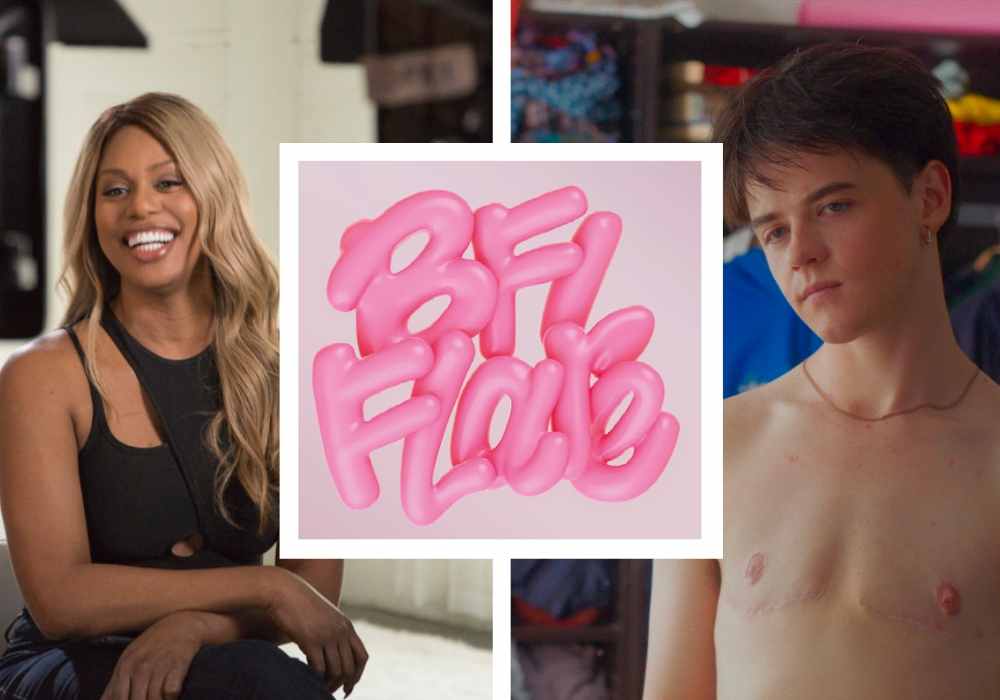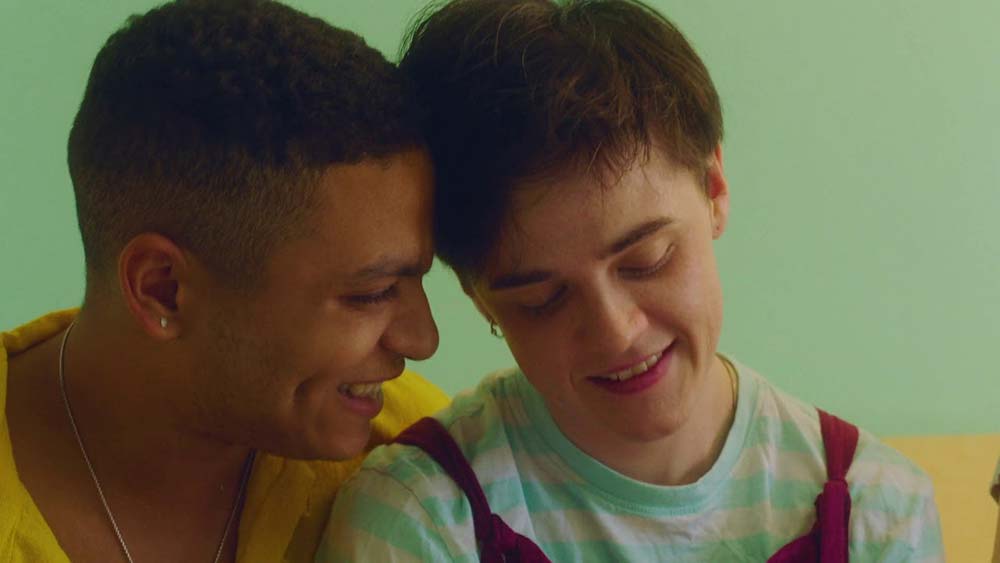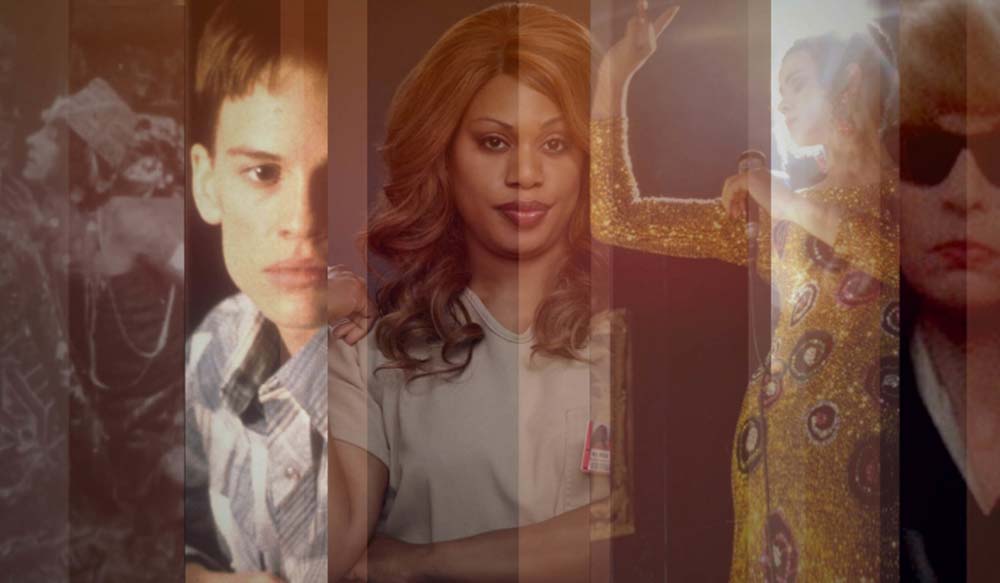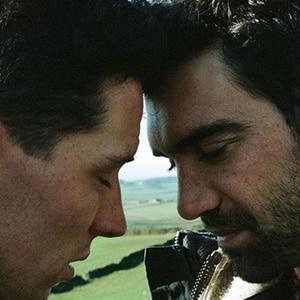BFI Flare 2020 took place entirely online. Orla Smith highlights Dungarees (dir. Abel Rubinstein) and Disclosure: Trans Lives on Screen (dir. Sam Feder) as the best of the online festival.

Europe’s largest LGBTQ+ film festival, BFI Flare, is usually an event that brings palpable excitement from my fellow film critics and film fans in London. It’s a joyous and lively celebration of queer cinema in all its diversity. It’s a place for films that ask specific questions about gender and sexuality and provide nuanced answers, as well as films that present queer people dealing with challenges completely unrelated to their queerness.
This year, the physical festival was cancelled (as so many events have been) due to the SARS-Cov-2 pandemic. The BFI tried to transport the spirit of the festival, and some of its films, to online platforms, even encouraging fans of the festival to partake in their legendary closing night party from their own living rooms and post about it on social media. But given the general low spirits of the nation (and the world) at the moment, as well as the high competition from hundreds of other organisations asking punters for online participation, it just wasn’t the same. BFI Flare was sorely missed this year, but I did manage to catch some of the shorts and features that played in online festival theatres and deserve a spotlight.
Dungarees

Abel Rubinstein’s Dungarees, is a charming, casual day-in-the-life study of Blake, a gay trans man who, after years spent transitioning and battling gender dysphoria, finally feels comfortable in his masculine presentation. After years of being asked to prove to people that he’s a man, Blake struggles with expressing himself in ways that might be considered feminine, like wearing nail polish. Surrounded by the supportive presences of his boyfriend and sister, we witness Blake take those first steps, during a day of lazing around in bed, playing video games, and having sex.
Disclosure: Trans Lives on Screen

The highlight of the festival for me was a film about trans representation, Sam Feder’s documentary Disclosure: Trans Lives on Screen. Feder chose to exclusively interview trans actors and filmmakers, despite the fact that trans characters have historically almost exclusively been written by and played by cisgender people. (This has, of course, been changing in recent years, and many of the interviewees, such as Laverne Cox and Jen Richards, are part of that change.) While Feder’s film is broadly structured as a linear journey through film history, it we occasionally jumps back and forth in time as the interviewees recount their own personal entry points to trans representation, and how key cultural touchstones have influenced their own on screen work. Thus, Disclosure isn’t just a glorified Wikipedia entry, but a history of trans representation of screen as told by actual trans people.
Keep reading about queer cinema…

Call Me by Your Name
Read Call Me by Your Name: A Special Issue, a collection of essays through which you can relive Luca Guadagnino’s swoon-worthy summer tale.

Portrait of a Lady on Fire
Read our ebook Portraits of resistance: The cinema of Céline Sciamma, the first book ever written about Sciamma.

God’s Own Country
Read God’s Own Country: A Special Issue, the ultimate ebook companion to this gorgeous love story.

